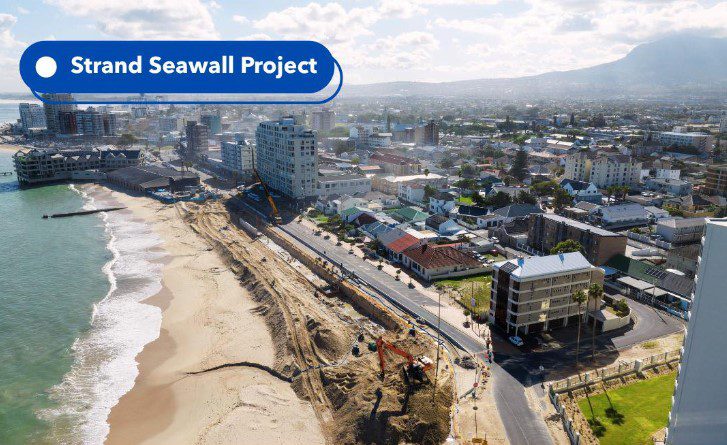The City of Cape Town’s Invested in Hope Budget 2025/26 prioritises improving the water quality of our vleis, strengthening the resilience of our coastline against the impact of climate change and rising sea levels, and upgrading our nature reserves that offer a welcome escape and educational opportunities to communities across the city. Curbing the spread of the invasive Polyphagous Shothole Borer Beetle is a priority, as is spending on urban regeneration projects in vulnerable communities and neglected central districts, and the finalisation of key precinct development plans to stimulate economic growth.
The City of Cape Town’s draft budget for the new financial year, starting 1 July 2025, was tabled at the Council meeting on 27 March 2025 and is available for public comment until 1 May 2025.
The Invested in Hope Budget considers the implications of climate change, population growth, in-migration, surge in informality, and the escalating need for indigent support and financial sustainability of City budgets.
‘The City’s Spatial Planning and Environment Directorate is responsible for a coastline covering 307km; to preserve our unique and world renowned biodiversity, among which our 21 nature reserves and wetlands; to sustainably manage special rating areas and those areas in need of urban regeneration; and finally, to assess development and building plan applications while realising the spatial goals as determined by the City’s Integrated Development Plan and Municipal Spatial Development Framework. Economic growth, socio-economic challenges, and spatial transformation are key priorities. The proposed budget demonstrates our commitment to deliver on these,’ said the City’s Deputy Mayor and Mayoral Committee Member for Spatial Planning and Environment, Alderman Eddie Andrews.
The directorate’s draft capital budget for the next three financial years amounts to just over R1.1 billion, and the operational budget for the new financial year is R1.9 billion.
Major projects include the following, among others
- R338 million to improve the resilience of our coastline with major upgrades of defence structures, including the seawalls at Strand, Table View, and Sea Point; and upgrades of the beachfront in Muizenberg, including a new seawall
- R198 million for the dredging of our vleis, including Zeekoevlei and Milnerton Lagoon, and the lowering of the weir at Zeekoevlei
- R156 million for fencing and upgrades at City nature reserves
- R130 million for improvements to the visitor education centres at Bracken, Harmony Flats, the Westlake Conservation Centre and False Bay overnight facilities. The construction of a new multipurpose facility at the
- Harmony Flats Nature Reserve will serve the communities of Gustrow, Dennehof, Rusthof and Llwandle
- R128 million for upgrades at public places, among which at the Parow station arcade, the station precinct in Salt River, Kruskal Avenue in the Bellville CBD, and Chapel Street in District Six
- R34 million for finalising upgrades to the Philippi Fresh Produce Market. Once done, the new Agri-hub will facilitate agri-business opportunities and associated training and business development services

The operational budget prioritises a number of projects for the new financial year, amongst which:
- Job creation opportunities: the Kader Asmal Programme and alien invasive plant clearing projects (R33 million); and the Community Ambassador Programme (R21,2 million)
- An additional R12,6 million for preventative measures in curbing the spread of the invasive borer beetle pest; this budget includes the appointment of permanent staff
- R15 million for the Shark Spotters NPO, which is assisting with baboon management on the South Peninsula
- R27 million for urban regeneration projects
- R21 million for repairs and maintenance at nature reserves, coastal infrastructure, and dune rehabilitation projects
- R65 million for security at nature reserves and coastal assets
- R5 million for the preservation of heritage assets across the city, and R1,9 million for the firebreaks maintenance programme
“I encourage residents to peruse the draft budget and submit comments. This is public money to be spent in the interest of our communities as we are building the City of Hope. Our professional and dedicated officials will manage the implementation of these projects together with residents’ ongoing support and collaboration, part of which is participation in the City’s budget process,” said Alderman Andrews.

